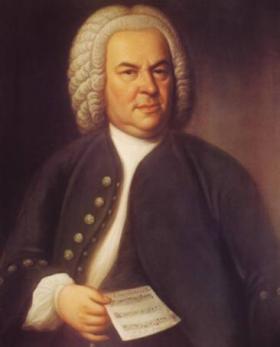- Home
- About
- About SCMS
- Directors
- Artists
- Vera Beths
- Steven Dann
- Marc Destrubé
- James Dunham
- Mark Fewer
- Eric Hoeprich
- Christopher Krueger
- Myron Lutzke
- Marilyn McDonald
- Douglas McNabney
- Mitzi Meyerson
- Pedja Muzijevic
- Anca Nicolau
- Jacques Ogg
- Loretta O'Sullivan
- Lambert Orkis
- Paolo Pandolfo
- William Purvis
- Marc Schachman
- Jaap Schröder
- Andrew Schwartz
- William Sharp
- Ian Swensen
- Lucy van Dael
- Ensembles
- Concerts
- The Collection
- Recordings
- Education
- Donate
Bach Seminar
Saturday, April 9, 2011
10:00 am
10:00 am
In central Germany during the late seventeenth and early eighteenth centuries, the name “Bach” was virtually synonymous with “musician,” since so many of Johann Sebastian Bach’s ancestors and relatives practiced that art. The word “Bach,” however, literally means “a brook, stream, or rivulet.” Ludwig van Beethoven, commenting on Johann Sebastian’s importance, said “Nicht Bach! Meer sollte er heissen: wegen seines unendlichen, unerschoepflichen Reichtums an Tonkombinationen und Harmonien." [Not "brook", but "sea" should he be called –because of his infinite, inexhaustible richness in tone combinations and harmonies.] For Robert Schumann, “We're all plodders compared to Bach,” while Johannes Brahms advised: “Study Bach, there you'll find everything.”
In this seminar, scholar/performer Kenneth Slowik examines Bach’s life and the glorious vocal and instrumental masterpieces he produced. The seminar concludes with a live performance of the Goldberg Variations, BWV 988.
10 to 11 a.m. From Eisenach to Cöthen
Bach’s life and music from his childhood through the early Mühlhausen and Weimar cantatas (with an in-depth discussion of Cantata 106, Gottes Zeit ist die allerbeste Zeit) to the Brandenburg Concerti.
11:15 a.m. to 12:30 p.m. Leipzig: the Choral Music
When Bach’s employer Prince Leopold of Anhalt-Cöthen married his cousin Friderica (whom Bach considered eine Amusa, someone not interested in the Muses), Bach began to look elsewhere for employment. In 1723 he was appointed Kantor of the St. Thomas School in Leipzig, a post he occupied for the rest of his life. We examine his yearly cantata cycles, and consider the large-scale works: the St. John Passion, the St. Matthew Passion, and the Christmas Oratorio.
12:30 to 1:45 p.m. Lunch
Participants provide their own lunch.
1:45 to 2:45 p.m. The Collegium Musicum, the B Minor Mass, and the late speculative works
From about 1730, Bach grew increasingly frustrated with the Leipzig authorities’ lack of response to his requirements for what he called “a well-regulated church music.” He spent considerable energy working with the Collegium Musicum, which had been established decades earlier by Georg Philipp Telemann, and in the composition, or assembly, of compendium-like masterpieces demonstrating his contrapuntal sovereignty: the B Minor Mass, the 2nd Book of the Well-Tempered Clavier, the Clavier-Übung (containing the Goldberg Variations), the Musical Offering, and the Art of Fugue.
3:00 to 4:30 p.m. Performance: The Goldberg Variations
Kenneth Slowik concludes the seminar with a traversal of the Goldberg Variations, prefacing his performance with an explanation of their fascinating structure.



